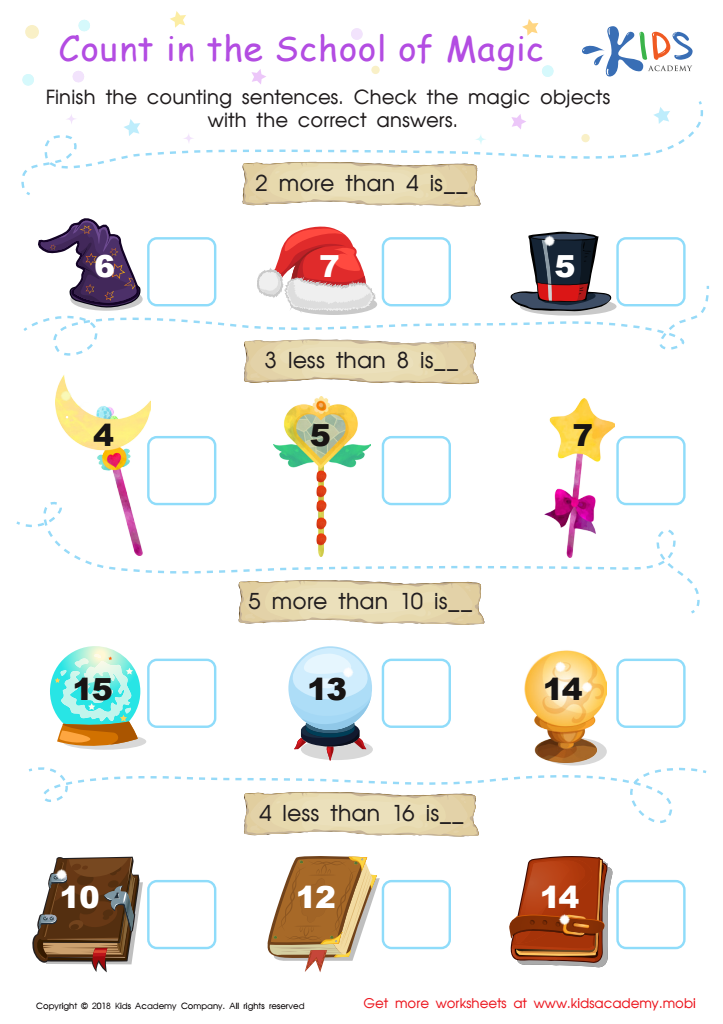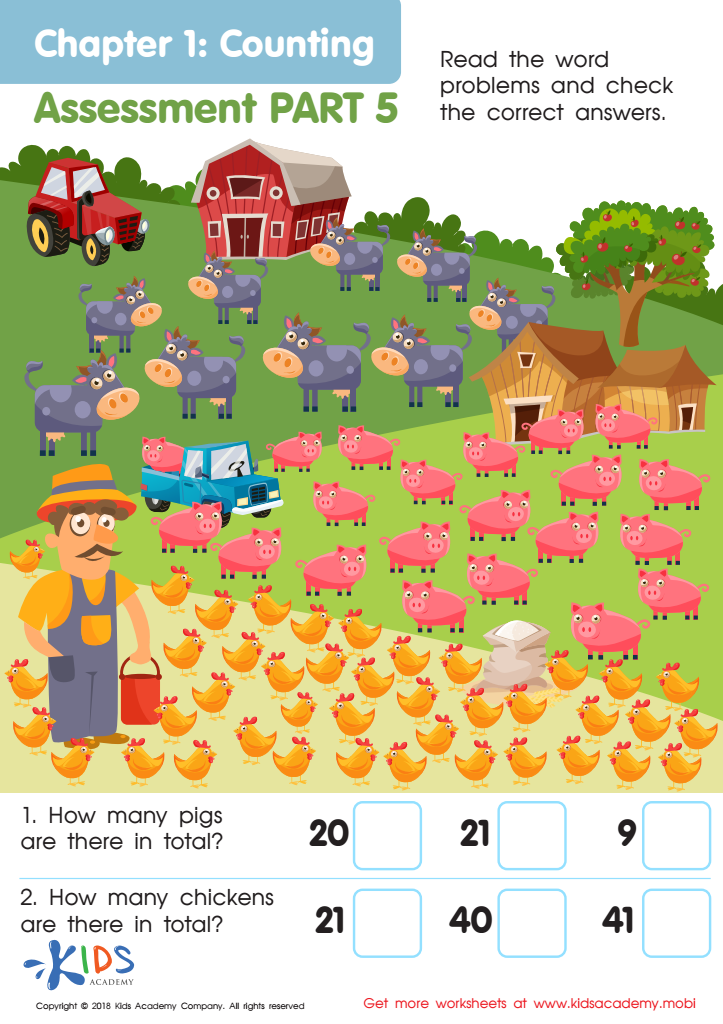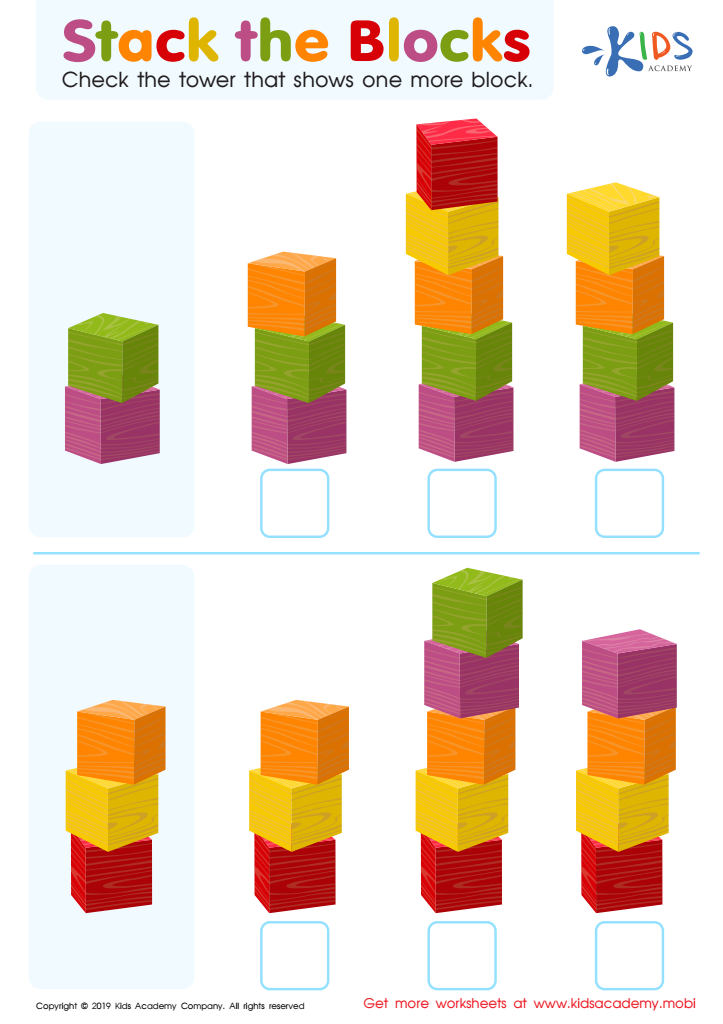Spatial reasoning Numbers Worksheets for Ages 4-7
3 filtered results
-
From - To
Enhance your child’s mathematical journey with our engaging Spatial Reasoning Numbers Worksheets, designed specifically for ages 4 to 7. These printable resources foster critical thinking and problem-solving skills through fun and interactive activities. Children will explore concepts such as shapes, patterns, and spatial awareness, laying a solid foundation for future math success. Each worksheet promotes hands-on learning and is aligned with educational standards, making it perfect for both home and classroom use. Encourage your little learners to discover the joy of numbers while developing essential spatial reasoning skills that are vital for early academic growth. Start their math adventure today!


Count in the School of Magic Worksheet


Counting: Assessment 5 Worksheet


Stack the Blocks Worksheet
Spatial reasoning is critical for children's overall development, yet often overlooked in early education. For children ages 4-7, the ability to understand and manipulate spatial relationships fosters foundational skills essential for mathematics and problem-solving. This skill set enables young learners to comprehend geometric concepts, visualize objects, and understand basic measurement, which are precursors to more complex mathematical ideas.
Parents and teachers should care about spatial reasoning because strong spatial skills are linked to academic success in STEM fields (science, technology, engineering, and mathematics). Early exposure to spatial activities, such as puzzles, building blocks, and interactive games, enhances cognitive development and encourages critical thinking. Neglecting these activities can lead to gaps in understanding and hinder a child's ability to grasp future mathematical concepts, which may affect their confidence and interest in the subject.
Additionally, spatial reasoning is vital in everyday activities, like navigating environments, organizing tasks, and participating in team activities. By nurturing these skills, parents and educators help prepare children not only for academic achievement but also for life's practical challenges, promoting well-rounded, lifelong learners. Engaging children in spatial reasoning activities at this young age empowers them to embrace problem-solving and creativity as they grow.
 Assign to My Students
Assign to My Students




















